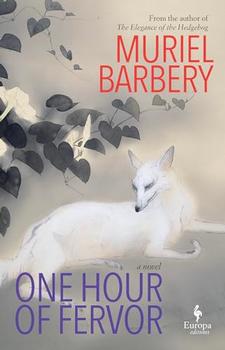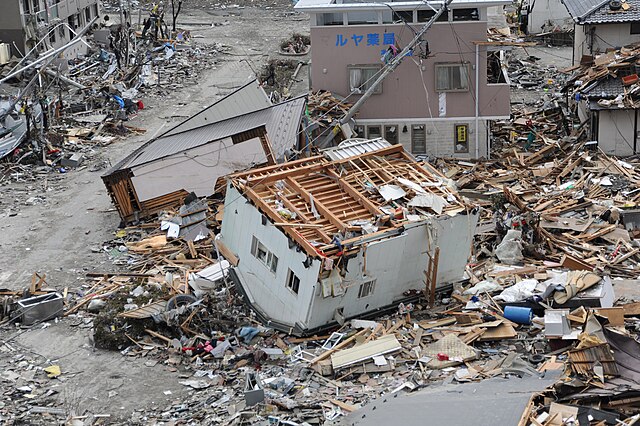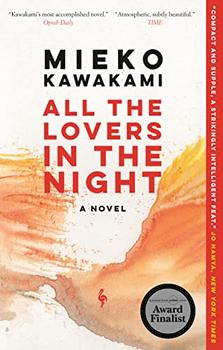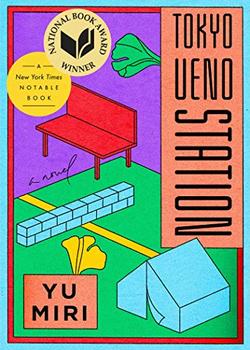Summary | Excerpt | Reviews | Beyond the book | Read-Alikes | Genres & Themes | Author Bio

From the best-selling author of The Elegance of the Hedgehog comes a family story with a difference, a novel about the decisions one makes and the destiny they determine by one of Europe's most brilliant and stylistically subtle authors.
Haru, a successful Japanese art dealer, loves beauty, harmony, art, balance, intriguing women, sophisticated conversation, and elegance. Months after a brief affair in Japan with a French woman, Maud, he discovers she is pregnant with his child. She warns him, however, that if he ever tries to see her or the child, she will kill herself. Quietly devastated at the thought of never knowing his daughter, who will become a dark presence in an otherwise elegantly orchestrated life, Haru decides he will respect Maud's wishes. His daughter grows to adulthood without ever knowing him. Is it too late to change things?
This is Haru's story. In her poetically precise prose, Muriel Barbery explores the deep love of a father, and what is gained and what is lost when one chooses a "family" of friends over one's biological family. In doing so, she captures the darkness that pushes people apart and the circumstances that can draw them together again.
Dying
As he lay dying, Haru Ueno was looking at a flower and thinking, It's all been about a flower. There were, in fact, three threads to the narrative of his life, and only the last one was a flower. Stretching before him was a small temple garden that sought to be a miniature landscape, scattered with symbols. It was a wonder to him that centuries of spiritual seek-ing had ended in this precise arrangement—so much striving for meaning and, in the end, pure form, he thought, too.
For Haru Ueno was a seeker of form.
He knew he was about to die, and he thought, At last I'm in accordance with things. The gong at the Hōnen-in sounded in the distance, four times, and he felt so intensely alive to the world that it made him dizzy. There before him, the garden enclosed by white-washed walls topped with gray tiles. In the garden, three stones, a pine tree, an expanse of sand, a lantern, some moss. In the distance, the mountains of the East. The temple itself was known as the Shinnyo-...
Author Muriel Barbery regularly employs evocative yet unusual imagery, with phrases like "[…] he was looking at the flower in himself," and "[…] death stood before him in the guise of a garden." This poetic prose, sympathetically translated from the French by Alison Anderson, is beautiful but can feel alienating due to a lack of explanation for its unconventional linguistic choices. The heady, dreamlike quality of the writing makes sense, however, when viewed from the context of the narrative structure, which sees an aged Haru reflecting on his life from his deathbed. Once you find the rhythm of the prose, it becomes much easier to submit to its singular melancholic style and better appreciate the skill of its construction...continued
Full Review
 (622 words)
(622 words)
(Reviewed by Callum McLaughlin).
 In Muriel Barbery's novel One Hour of Fervor, her characters watch the television in horror as news breaks of a huge earthquake in Japan's Tohoku region and its resulting tsunami. Though they are safely on high ground far from the impacted area, they are immediately fearful for loved ones, and reminded all too starkly of just how quickly life can come to an end.
In Muriel Barbery's novel One Hour of Fervor, her characters watch the television in horror as news breaks of a huge earthquake in Japan's Tohoku region and its resulting tsunami. Though they are safely on high ground far from the impacted area, they are immediately fearful for loved ones, and reminded all too starkly of just how quickly life can come to an end.
The disaster appearing in Barbery's novel is based on a real one, adding to the poignancy of the scenes described. On March 11, 2011, a magnitude 9.1 earthquake struck beneath the ocean around 70 kilometers (43 miles) from the Tohoku region on the island of Honshu. The earthquake was the most powerful ever recorded in Japan, and the fourth largest worldwide since records ...

If you liked One Hour of Fervor, try these:

by Mieko Kawakami
Published 2023
Bestselling author of Breasts and Eggs Mieko Kawakami invites readers back into her immediately recognizable fictional world with this new, extraordinary novel and demonstrates yet again why she is one of today's most uncategorizable, insightful, and talented novelists.

by Yu Miri
Published 2021
A surreal, devastating story of a homeless ghost who haunts one of Tokyo's busiest train stations.




Great literature cannot grow from a neglected or impoverished soil...
Click Here to find out who said this, as well as discovering other famous literary quotes!